A Comprehensive Analysis: Legalization of Marijuana - Hit or Miss?
VerifiedAdded on 2023/04/25
|5
|1268
|426
Essay
AI Summary
This essay provides a comprehensive overview of the legalization of marijuana in the United States, examining its multifaceted impacts. The introduction defines marijuana and highlights the recent trend of legalization in several states, mentioning the psychoactive compound THC. The discussion section delves into both the positive and negative aspects. The advantages include economic benefits like increased tax revenue and reduced black market activity, the potential for medicinal uses in treating various conditions, a reduction in opioid dependency, the availability of better-quality products, and a decrease in crime rates. Conversely, the essay also explores the drawbacks, such as the potential for addiction, second-hand smoke issues, adverse effects on lung health, the gateway drug theory, negative impacts on mental health including memory loss and depression, and impaired driving. The conclusion summarizes the arguments, suggesting that while legalization has benefits, it also necessitates precautionary measures and further research to mitigate potential harms. The essay references several studies to support its claims.
1 out of 5
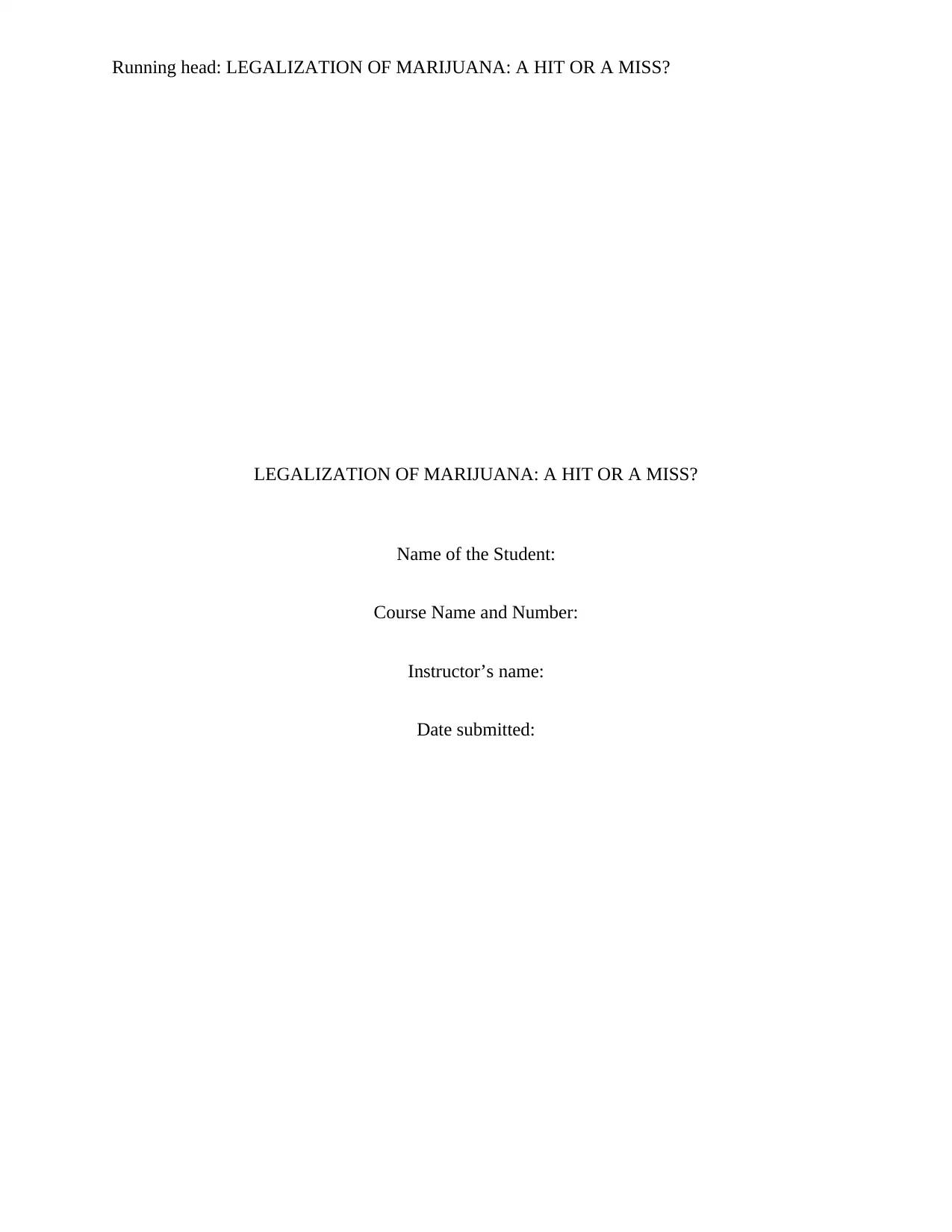
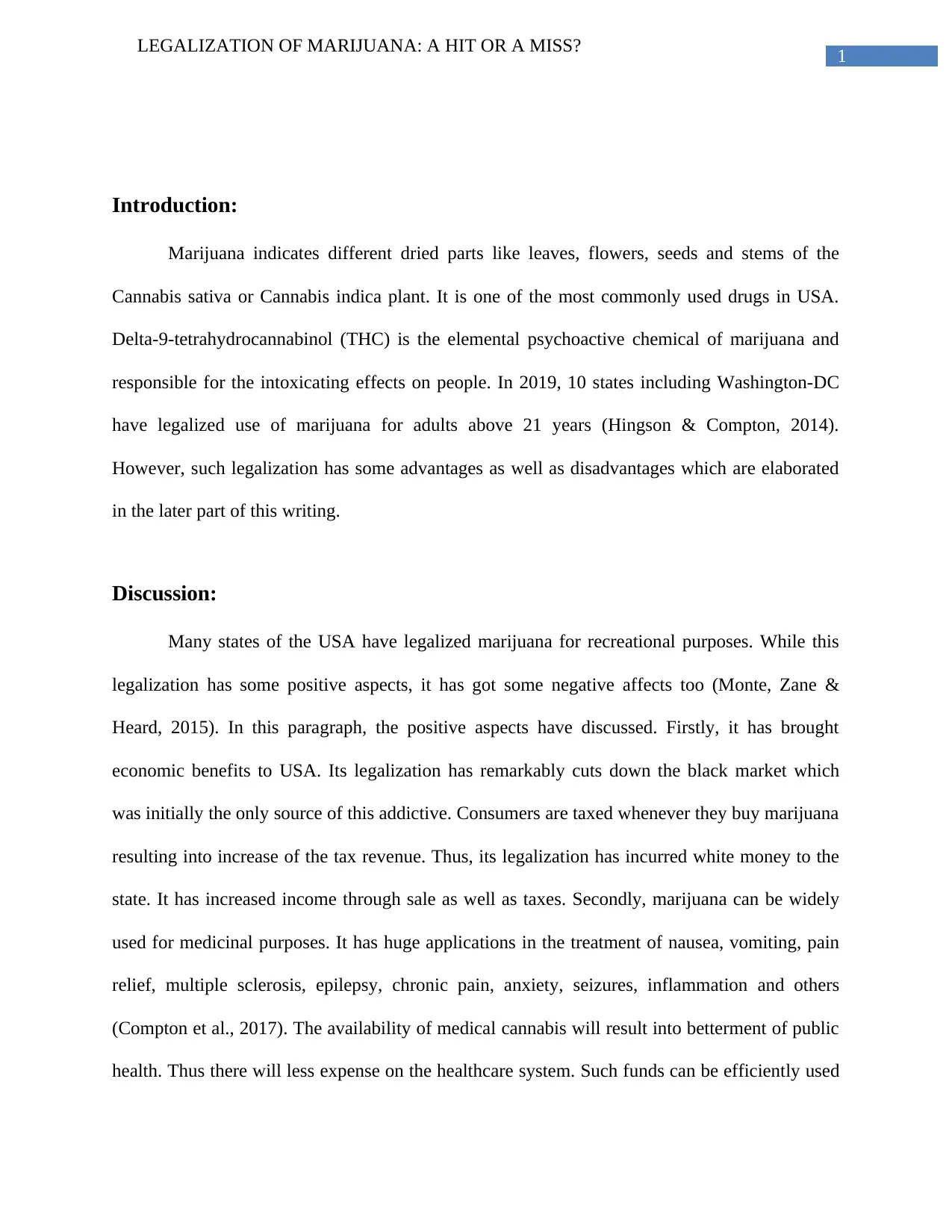
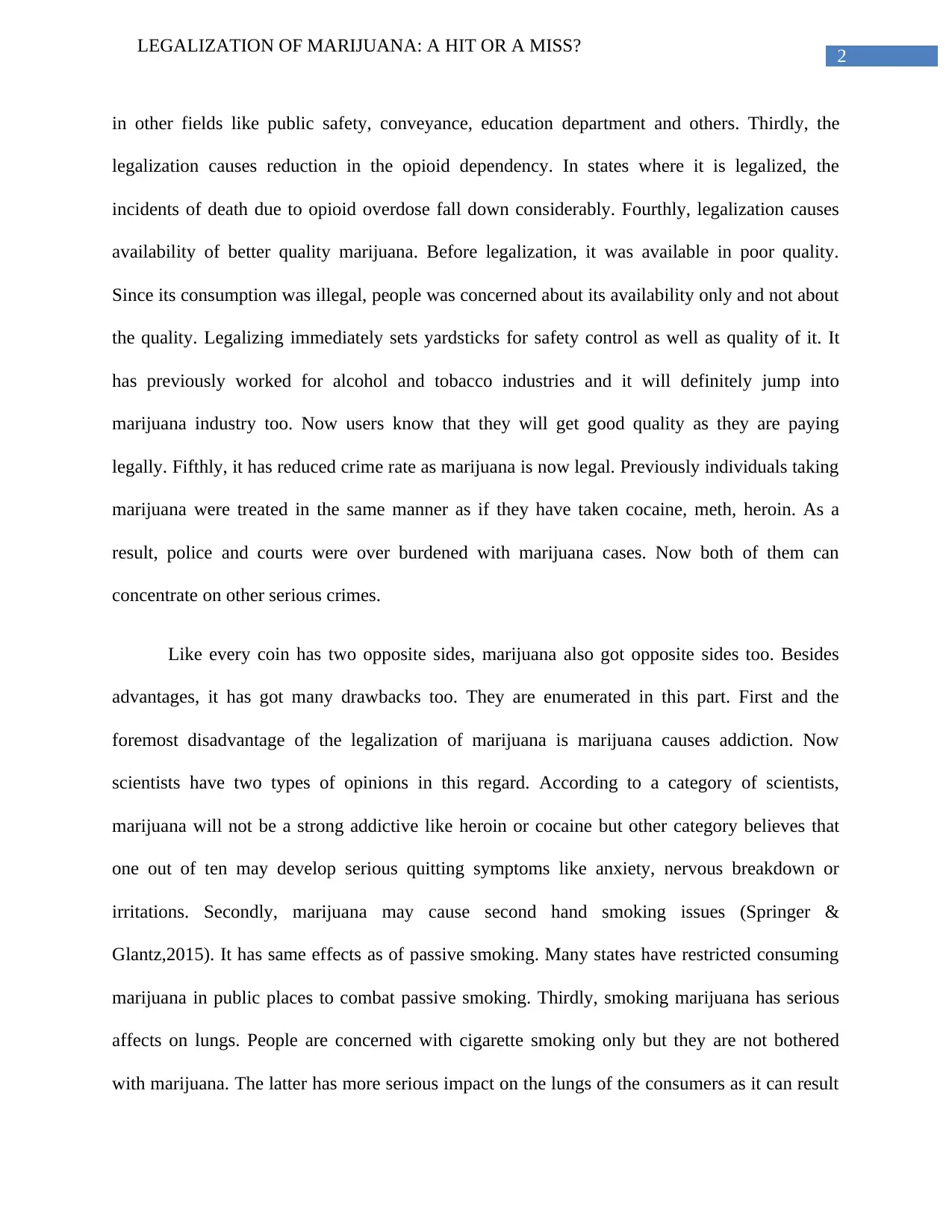

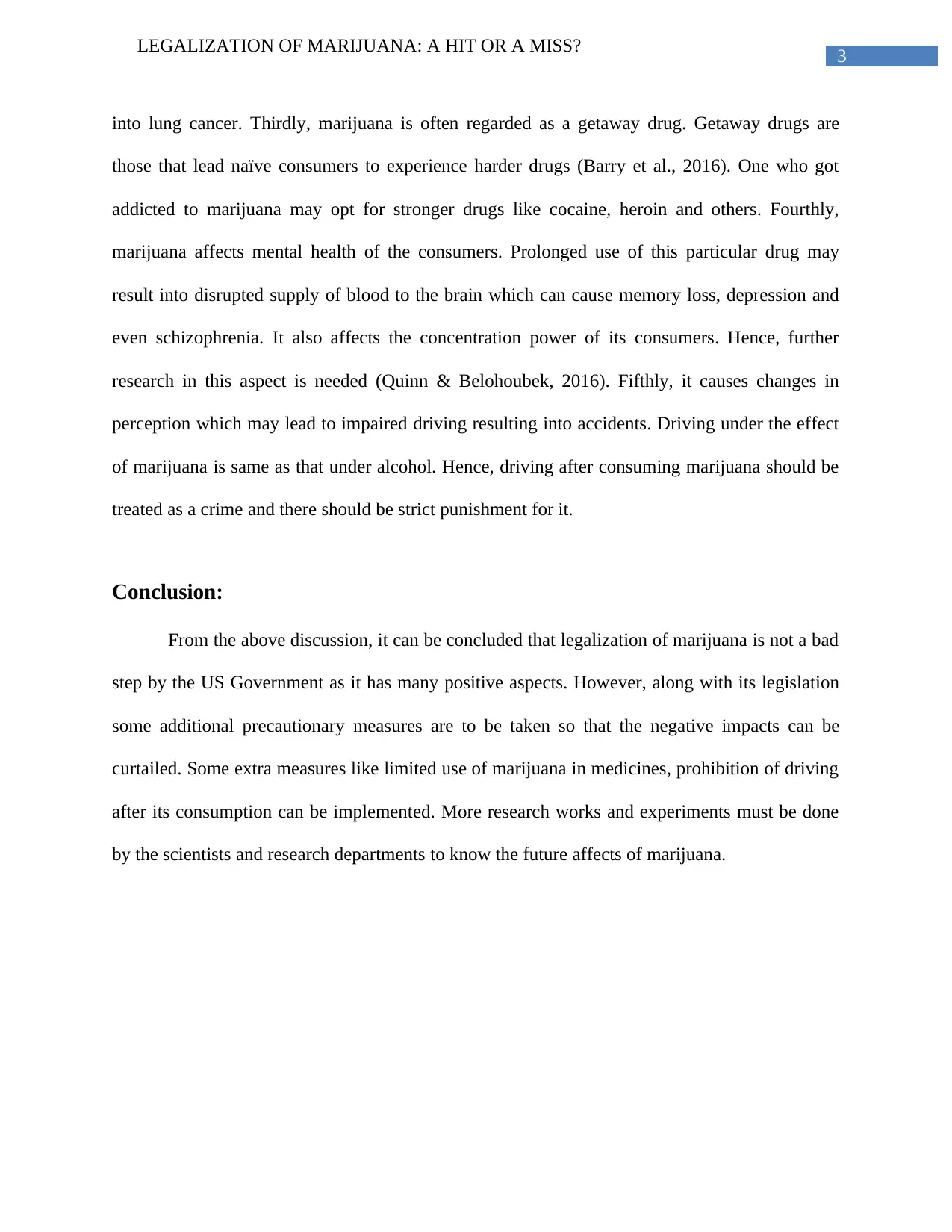
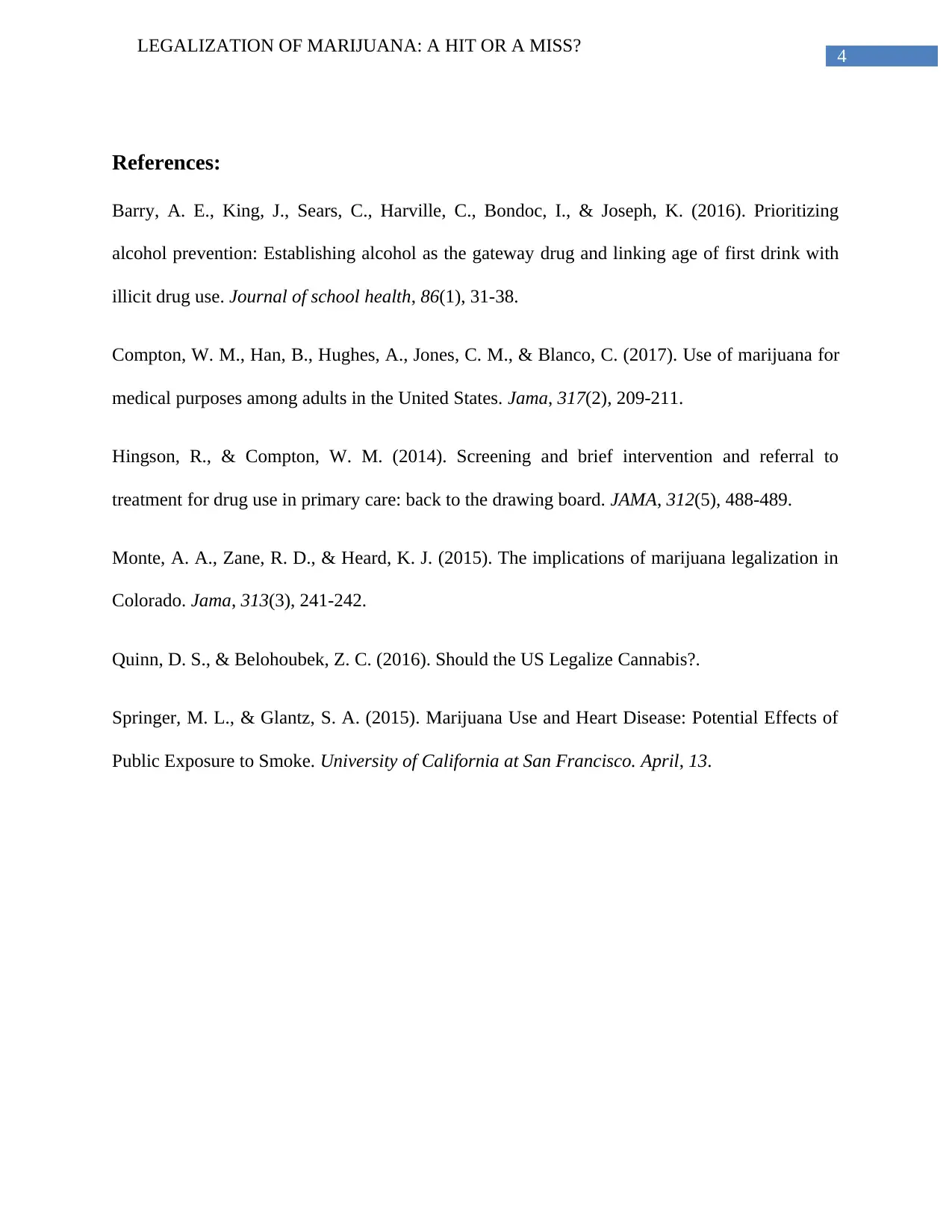
![[object Object]](/_next/static/media/star-bottom.7253800d.svg)